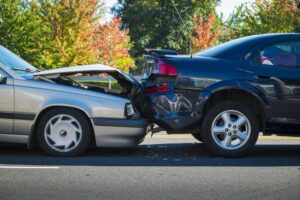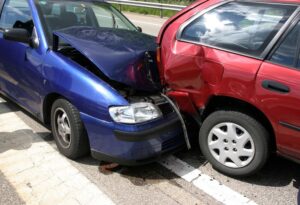 By the numbers, teen drivers are the riskiest group of drivers on the road. If you’ve been in an accident, that means there’s a good chance the person driving the other vehicle was a teenager. And teens themselves are often victims, because they’re often passengers in the vehicles of friends.
By the numbers, teen drivers are the riskiest group of drivers on the road. If you’ve been in an accident, that means there’s a good chance the person driving the other vehicle was a teenager. And teens themselves are often victims, because they’re often passengers in the vehicles of friends.
As a result, the state of Georgia has passed laws making teens prove themselves before they can get a normal driver’s license. Unfortunately, accidents still happen. If you or your child have been in an accident involving a teen driver, you need answers. Below, we’ll cover everything you need to know and what to do if you or your teen got hurt in an accident.
Teen Driver Accident Statistics
It’s not an exaggeration to say that teens are the drivers most likely to get in an accident. According to the Centers for Disease Control and Prevention (CDC), teens between the ages of 16 and 19 face the highest risk of accidents of any age group, and are nearly three times more likely to be in a fatal crash than those age 20 and older.
There are several reasons for this heightened risk:
- Lack Of Experience. Most adults have been driving for years. But teens are brand new at driving—and that affects their ability to drive safely.
- Risky Driving Behavior. Teens are more likely to engage in daredevil behavior such as racing, speeding or following too closely.
- Distracted Driving. Texting is not the only type of distraction in a vehicle, and teenage distracted driving is nothing new. Teen drivers are also frequently distracted by talking to friends, dancing to music, navigating, eating while driving, or simply horsing around. Fixing makeup is also a common distraction.
- Drugs and Alcohol. DUI is not limited to any age group. But teenagers often experiment with drinking or drugs, even though it’s illegal. And many teens don’t understand how to pace themselves on drinking—or why they should drive under the influence. As a result, DUI is an extremely common cause of teenage accidents.
Not all teens face equal risks. The CDC also reports that males are more likely than females to cause accidents. And, across all teenagers, the risk of an accident is greater if there are other teen passengers in the car—or if it’s the teen’s first year or so of driving. Georgia’s laws regarding teenagers were built around these facts, and are designed to minimize the danger from the riskiest drivers.
Get the strong arm
Understanding Joshua’s Law
 In addition to following all the normal rules of the road, teenagers in Georgia are subject to an additional law known as Joshua’s Law.
In addition to following all the normal rules of the road, teenagers in Georgia are subject to an additional law known as Joshua’s Law.
Joshua’s Law which dramatically strengthened the requirements teens face to get their licenses in the first place. The law requires at least 40 hours of supervised, on-the-road driving experience prior to getting a license. This includes at least 6 hours of nighttime driving experience. The law also requires that teens complete an approved training course, which includes 30 hours of instruction either in a classroom or online.
The 3 Stages of Teenage Driver’s Licenses Under TADRA
Teenage & Adult Driver Responsibility Act (TADRA). Under TADRA, teens under 18 cannot simply apply for a full driver’s license, even when meeting the requirements above. Instead, they have to go through a three-stage graduated license. Here’s how the three stages of the TADRA graduated license work:
- Learner’s Permit. Starting at age 15, a teen can apply for a learner’s permit or “Class CP License,” which requires passing an exam. With this permit, teens can drive only under the supervision of an adult (21 or older) with a valid driver’s license.
- Intermediate License. To get an intermediate or “Class D” license, a teen must have had their learner’s permit for at least 1 year. They also need to be at least 16 years of age and pass a driving test. This license lets them drive, but only under certain restrictions:
- For the first 6 months, they cannot have any passenger who is not a member of their family.
- For the next 6 months, they can have non-family members as passengers, but no more than 1 non-family passenger who’s under 21 years old.
- After that, they can have up to 3 non-family passengers who are under 21.
- Full Driver’s License. Finally, starting at age 18, the teen can apply to get a normal “Class C” driver’s license. They are only eligible if they’ve had no major traffic convictions in the previous 12 months.
There are no exceptions to these rules. All teenaged drivers must follow both TADRA and Joshua’s Law. Failure to do so carries many penalties and future restrictions.
What do I Do If I Get Hit By a Teenaged Driver?
If you don’t need to be taken to an emergency room right away, there are four major rules for dealing with this kind of accident:
- Tell officers about any kind of reckless behavior you saw. This could include the teens in the other car dancing, yelling out windows, using a device, speeding, or changing lanes aggressively. Teens will often admit this behavior when law enforcement asks them about it. Georgia is a fault state, so this can be crucial to your case.
- Look for signs of intoxication or drug use. If teens are acting drunk, staggering, or slurring words, this is a sure sign. But they may also try to dispose of bottles or drugs. Use your camera to record intoxicated behavior and tell officers about anything you saw.
- Do your best to stay calm. It can be infuriating to be hit by someone who made a dumb mistake or wasn’t even paying attention. But teens don’t always know how to handle an accident. It’s important to stay calm and properly defuse the situation.
- Be an adult. The teen that hit you may not be sure where insurance paperwork is or what they’re supposed to do after pulling over. You may be the only adult present until police arrive. Tell the teen to wait for the police, and let officers serve as your go-between.
Most teens have car insurance through their parents, and your claim will ultimately be with the parents or their insurance company, not with the teenagers directly.
What Should I Do If My Teen Was Hurt in a Car Accident?
Not all teens are at fault for the accidents they’re in. The most common type of teen victim is someone who was a passenger in a friend’s car. Whether or not the friend was at fault, the passenger is an innocent victim. Here’s what you need to know:
- You have a valid car accident claim. Your claim may be against the teen driver, the other driver, or both, but if your teen was a passenger you definitely have a valid claim. You need to talk to a lawyer.
- Be prepared for drugs or alcohol. Teens have many opportunities to try these substances, and even otherwise responsible teens sometimes experiment with them. Car accidents often involve intoxication—you should be ready for this possibility with your own child.
- Your teen has likely already talked to the police. Even if your teen calls you immediately, it’s unlikely you’ll reach the scene before the police. Police may ask your teen questions without you or a lawyer present. If your teen was drinking or breaking another law, be prepared that they may have already said something incriminating without realizing it. It still helps to get a lawyer as soon as possible.
- Never let someone else shift the blame. It’s possible that everyone in the car, including your teen, was horsing around. But ultimately the driver is the one responsible for the vehicle. If your teen was a passenger, don’t let the insurer try to shift blame—get a lawyer who can fight back and get you a fair recovery.
Even though societal perception and the law aren’t exactly in your teen’s favor, that doesn’t mean the situation is hopeless. You can get compensation for your teen’s injuries and damages as long as you get strong legal representation.
Statute of Limitations for Car Accidents
Even if a teenaged driver or passenger is involved, you don’t have long to file a claim for your car accident. You have two years to file your claim before the statute of limitations expires. Don’t let time pass by. Many people overestimate how much time they have and wait to file until the last minute.
The longer you wait, the more critical evidence will become weak or disappear entirely. Once the statute of limitations is up, there’s nothing you can do to get the compensation you deserve. Don’t procrastinate and find yourself in this situation. After getting medical treatment, speak to one of our car accident lawyers immediately.
No Fees Upfront
When you retain the services of one of our car accident lawyers, you don’t have to pay anything upfront. Our primary goal isn’t getting paid, it’s helping you win a fair settlement against the insurance company. We only get paid if we win you compensation. If we can’t win compensation for your claim, you owe us nothing.
While it’s true that there are predatory law firms out there only trying to steal your settlement away, we aren’t like them. With more than 20 years of dedicated service to our clients, we have the results and testimonials that show our work ethic and honesty. You can trust us to fight hard on your behalf and get you the money you need to move forward and heal from your accident.
Talk to a Lawyer for Free
 You don’t need to face the aftermath of an accident by yourself. Let the car accident attorneys at John Foy & Associates give you a free consultation about your case. To schedule an appointment, don’t hesitate to call us or contact us online. We are available 24/7.
You don’t need to face the aftermath of an accident by yourself. Let the car accident attorneys at John Foy & Associates give you a free consultation about your case. To schedule an appointment, don’t hesitate to call us or contact us online. We are available 24/7.
404-400-4000 or complete a Free Case Evaluation form

